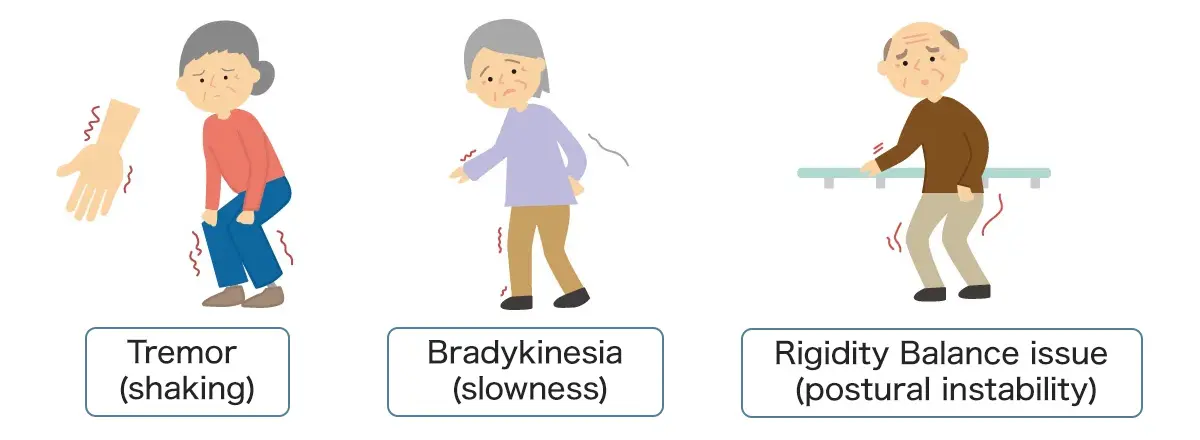Magnetic resonance-guided focused ultrasound (MRgFUS)
Magnetic resonance-guided focused ultrasound (MRgFUS)
MRgFUS is an ablative procedure where about 1,000 ultrasonic beams focus at one point in the brain to heat the target under real-time monitoring of the location and temperatures using magnetic resonance imaging (MRI). This “skin-incisionless surgery” is mainly used to treat essential tremor and Parkinson’s disease.
Other surgical options for these disorders include radiofrequency (RF) ablation and deep brain stimulation (DBS), which require (a) skin incision(s), (a) burr hole(s), and insertion of (an) electrode(s). However, MRgFUS is characterized by its less invasiveness, such that it solely coagulates the target in the brain without mechanically passing the skull or the brain. Our center has experienced many cases of MRgFUS for essential tremor and Parkinson’s disease.
Essential tremor
Essential tremor (ET) is a disorder characterized by involuntary shaking that mainly affects hands/arms but could also affect other parts of the body such as legs, head, body trunk, face, tongue, and voice. Even radiological imaging or lab tests cannot detect its cause, which is why it is called “essential” tremor. Typical manifestations due to tremor (shaking) include difficulty in writing, drinking water, using utensils, etc., frequently disabling patients’ daily activities. While the initial treatment for ET is medications, its success rate is not very high (approximately 50%) due to side effects or the lack of effectiveness. In addition, the severity of tremor typically worsens with age. Surgical treatment including MRgFUS is a reasonable therapeutic option for ET patients who have failed medications.
Parkinson’s disease
Parkinson’s disease (PD) shows various symptoms such as slowness, tremor (shaking), rigidity, balance issues, etc. This disease is caused by degeneration and loss of dopaminergic neurons in the midbrain. The initial treatment is medications including levodopa (dopamine replacement therapy); however, PD progresses over time, manifesting motor fluctuations, on-off phenomenon, wearing off, etc. Furthermore, levodopa could cause dose-related involuntary movement called dyskinesia. Surgical treatment including MRgFUS is a therapeutic option for PD patients with uncontrolled symptoms due to progression and/or with dyskinesia.
Typical Parkinsonian symptoms

Indications for MRgFUS
Patients with ET or PD who have symptoms poorly controlled with medications are potential candidates for MRgFUS. Please contact our center for details using the contact form below.
